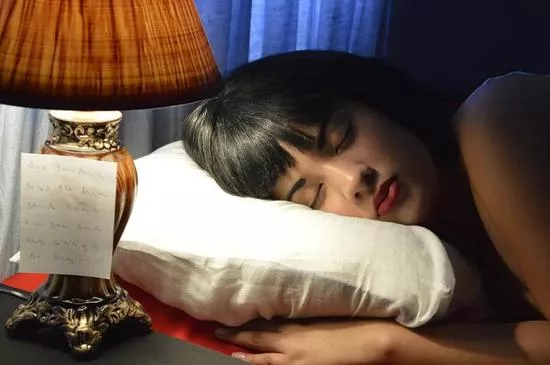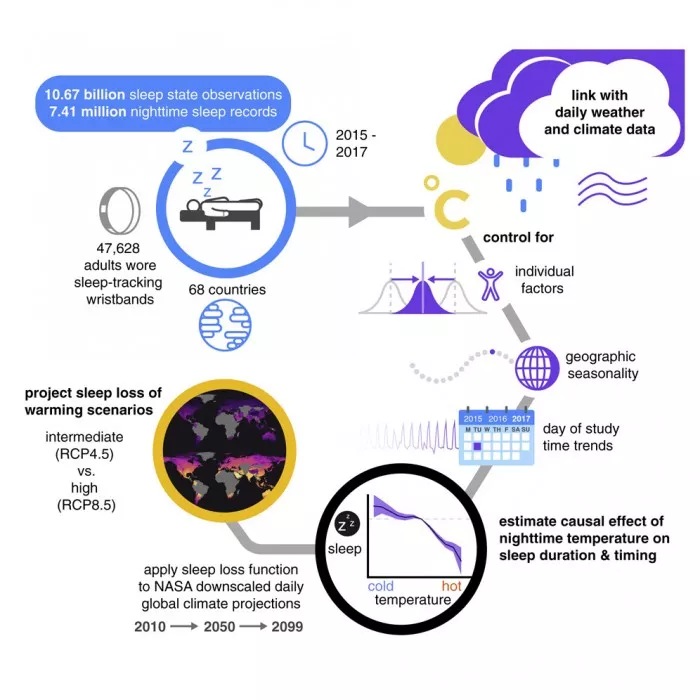According to new atlas, more severe and frequent droughts, storms and other extreme weather events are the way scientists predict that climate change will endanger human health, but global temperature will also affect our health in a more hidden way. Scientists have begun to explore the idea of human sleep on the premise that rising ambient temperatures are affecting the quality of our rest They may have cost us tens of hours of sleep a year, a new study suggests

Many people may be familiar with the discomfort of tossing and turning in the muggy night, just as they may know the fatigue that may occur the next day. While occasional interruptions to our sleep during Tropical holidays or warm summer weather may be part of the process, as research continues to show, the long-term and regular effects on our sleep quality may have a significant impact on our health.
Just over the past few years, we have seen research linking poor sleep habits to the risk of heart disease, dementia, obesity, cancer and shortened life expectancy. At the same time, the global temperature continues to rise. Last year, the global average temperature was about 1.11 ° C higher than the pre industrial level. The past seven years have been the hottest year on record. So, does climate change make it more difficult for people to get good sleep, and therefore affect human health?
Observational studies and survey data have previously suggested that this may be the case, finding a link between rising night temperatures and self-reported nights of poor sleep. To find more concrete evidence, the authors of the new study collected global sleep data from accelerometer based tracking wristbands worn by more than 47000 adults in 68 countries, covering all continents except Antarctica.
"In this study, we provide the first evidence on a global scale that temperatures higher than average erode human sleep. Our research shows that this erosion occurs mainly by delaying people's time to sleep and waking up early in hot weather," said Kelton minor, lead author of the University of Copenhagen

Minor and his co authors came to these conclusions after analyzing data including 7 million nocturnal sleep records. They found that sleep was reduced by an average of more than 14 minutes on very warm nights with temperatures above 30 ° C. On a global average, the author calculates that people lose about 44 hours of sleep per person per year due to the unsatisfactory night temperature, which also leads them to experience about 11 nights of sleep deprivation.
"Higher outdoor temperatures have been eroding sleep in different seasons, demographics and climate settings, and the amount of sleep loss increases as the temperature increases," minor said
As carbon dioxide continues to accumulate in the atmosphere and global temperatures continue to rise, scientists expect this trend to continue, possibly eroding 58 hours of sleep per person per year by the end of the century. People and older people in low-income countries are most affected, and women also lose slightly more sleep than men.
Scientists point out that developing countries may feel these effects more because of the low popularity of air conditioning, although this is beyond their control because they do not have access to air conditioning data from study participants. Whether this is the case or not, these findings are consistent with other predictions that climate change will have a disproportionate impact on the world's poor, who will find it more difficult to adapt as the world warms.
Because of this imbalance and the global perception of sleep loss caused by climate change, scientists say further research should focus on vulnerable people living in warmer and poorer areas of the world. They hope to work with sleep researchers and climate scientists to expand the scope of research and study the impact on the imprisoned population with limited access to air conditioning.
The study was published in one earth00209-3?_ returnURL=https%3A%2F%2Flinkinghub. elsevier. Com% 2freetrieve% 2fpii% 2fs259033222200093% 3fshowall% 3dtrue #% 20).